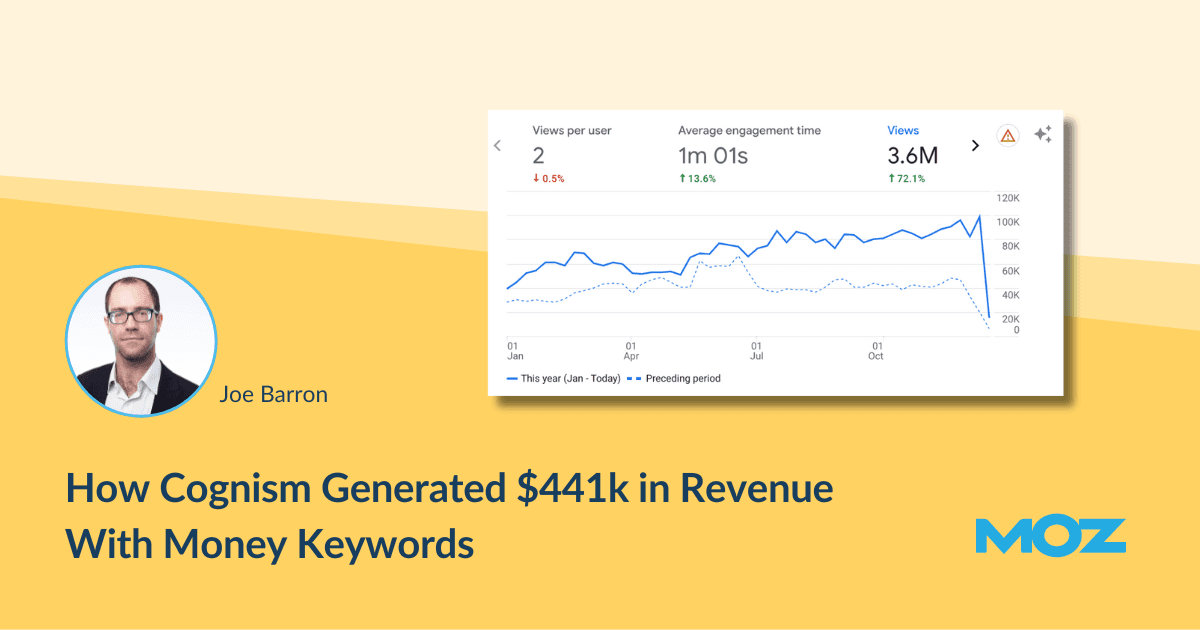Then, we graded our money keywords as 3s — these were the high-intent keywords where we could easily present Cognism as the answer to our buyers’ pain. An example is “b2b contact data provider”. At the end of this stage, we had a list of roughly 25 keywords that were ripe for money keywords.
2. Focus on the product
In the second stage of the process, we reviewed our existing content with a product-focused mindset.
With each money keyword page, we had to make sure they answered the following questions:
-
What does our product do?
-
What is it good/bad at?
-
What are the benefits of using it?
-
How does it compare to what our competitors offer?
The trick was understanding our product deeply, who uses it, and what it’s best at. With this information, we could position Cognism as the perfect solution for our buyers. This focus on the product led us to create different strands of money keyword pages based on our competitors.
For example, listicle content comparing ZoomInfo alternatives or “crash the party” pages targeting keywords our competitors rank for, such as ZoomInfo pricing.
However, it’s important to stress that we never wanted to bash competitors or make misleading statements unnecessarily. Instead, we wanted our money pages to accurately reflect the different tools.
We worked with our product marketing and legal teams during publication to ensure we stayed within the mark. They had to sign off every page before we hit the publish button.
3. Identify new keyword opportunities (by thinking like our customers)
This stage was all about good old-fashioned keyword research. We aimed to find new keywords we could add to our money keyword list.
The key was to think like a customer. What keywords would someone type into Google if searching for tools like Cognism?
Again, we gave all keywords a business potential score from zero to three, with zero meaning the keyword was limited in presenting Cognism as the best solution and three meaning that Cognism was a critical or essential solution to the problem.
4. Publish the content
By the fourth stage, we had a list of existing and new money keywords. It was simply a matter of publishing new pages or updating old ones. We gave ourselves some more rules to follow:
Optimizing for conversions
If the existing content generated high traffic but few conversions, we optimized for conversions (see the CRO section below for more info).
Here’s an example:
We revamped our “B2B data” page for conversions, adding elements such as forms and explainer videos. We wanted to give visitors targeted information in more interactive formats while making requesting demos on the page seamless.
Showing the before and after:



